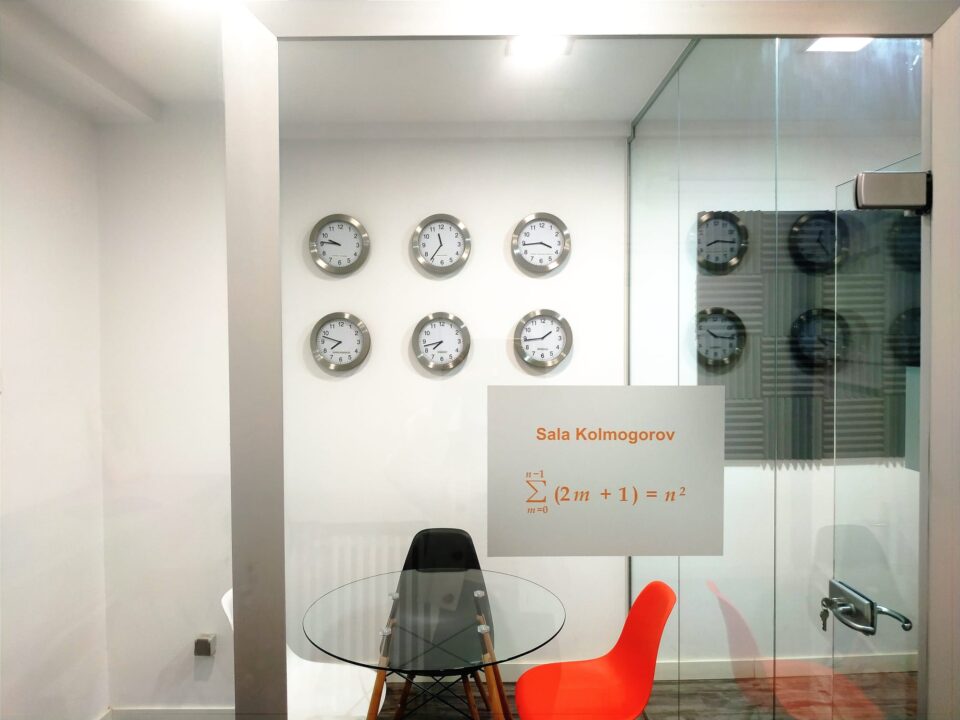This entry is the first in a series of three about the people who give baobab meeting rooms their names.

The smallest of the baobab meeting rooms, designed for meetings between two people and whose usefulness during the pandemic was reduced to a telephone booth, bears the name of one of the greatest mathematicians of the 20th century: Andrei Nikolayevich Kolmogorov.
The reasons for this choice are many, the most obvious is the one that gives the title to this entry since that is how he is considered: the father of modern statistics. Among his more than 680 publications, in addition to statistics, he made essential contributions to functional analysis, pedagogy (a fundamental interest in his life, the education of young people) and information theory, among many others. He covered the whole spectrum from the purest mathematics to that of the most direct application. He is also the author of phrases as rounded and in line with baobab’s values as the one left in 1984, just three years before his death:
“I have followed all my life the precept that truth is sacred, that it is our duty to seek it and to defend it, regardless of whether it is pleasant or unpleasant”.
Or this one, which he wrote in 1959:
“I regard formal rigour as mandatory, and I think that in the final analysis, after a great deal of work (which is usually useful for a definite understanding) rigour can always be combined with complete and natural simplicity (especially in the exposition of important results, which are always, in essence, simple results). The only way to realise this ideal is to demand strict logical clarity even where this is annoying.”
However, the attentive observer will have noticed, in the image that accompanies these lines, that, although we could have chosen any of these phrases, we have chosen to “subtitle” the room with a result that is not even his. The sum of an arithmetical progression was a result already known to the classical Greeks. The reason for such a singular choice is that we wanted to highlight another of our protagonist’s qualities, also a trademark of baobab: precocious talent. Kolmogorov “found” the result of the figure at the tender age of six. He published it in his school magazine (called Spring Swallows): the sum of the first consecutive odd numbers is always a perfect square.
This precocity is not just anecdotal, and Kolmogorov achieved international fame at the age of 19 for his publications on trigonometric series.
There could not be a better ambassador for the precociousness of our young experts in operations research.
Bibliography:
Kolmogórov, A. N., Selected Works: Vol I, Mathematics and Mechanics; Vol II, Probability Theory and Mathematical Statistics; Vol III, Information Theory and the Theory of Algorithms. Kluwer, Berlin, 1991-1993.
Kolmogórov, A. N., Foundations of the theory of probability, Chelsea, New York, 1956.
Sánchez Fernández, C. and Valdés Castro, C., Kolmogorov, El zar del azar, Nivola, 2003.



